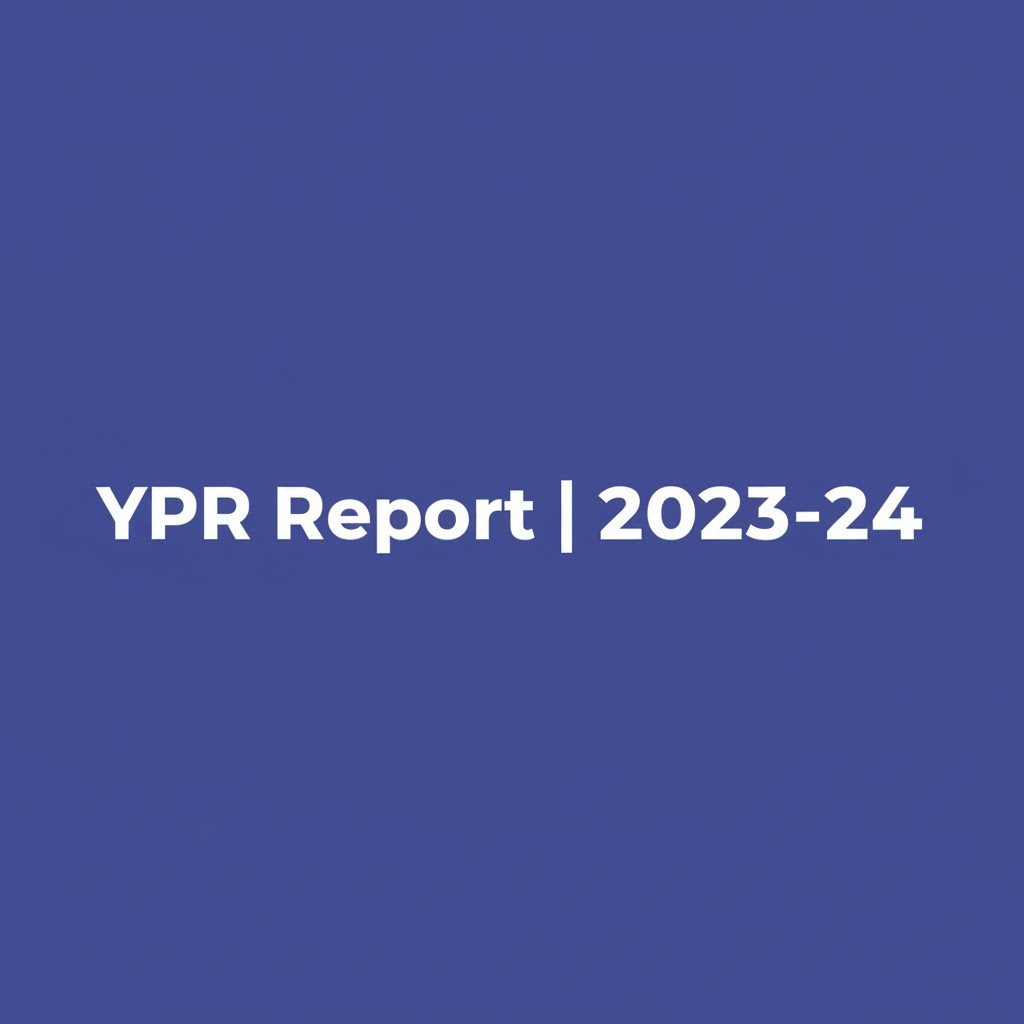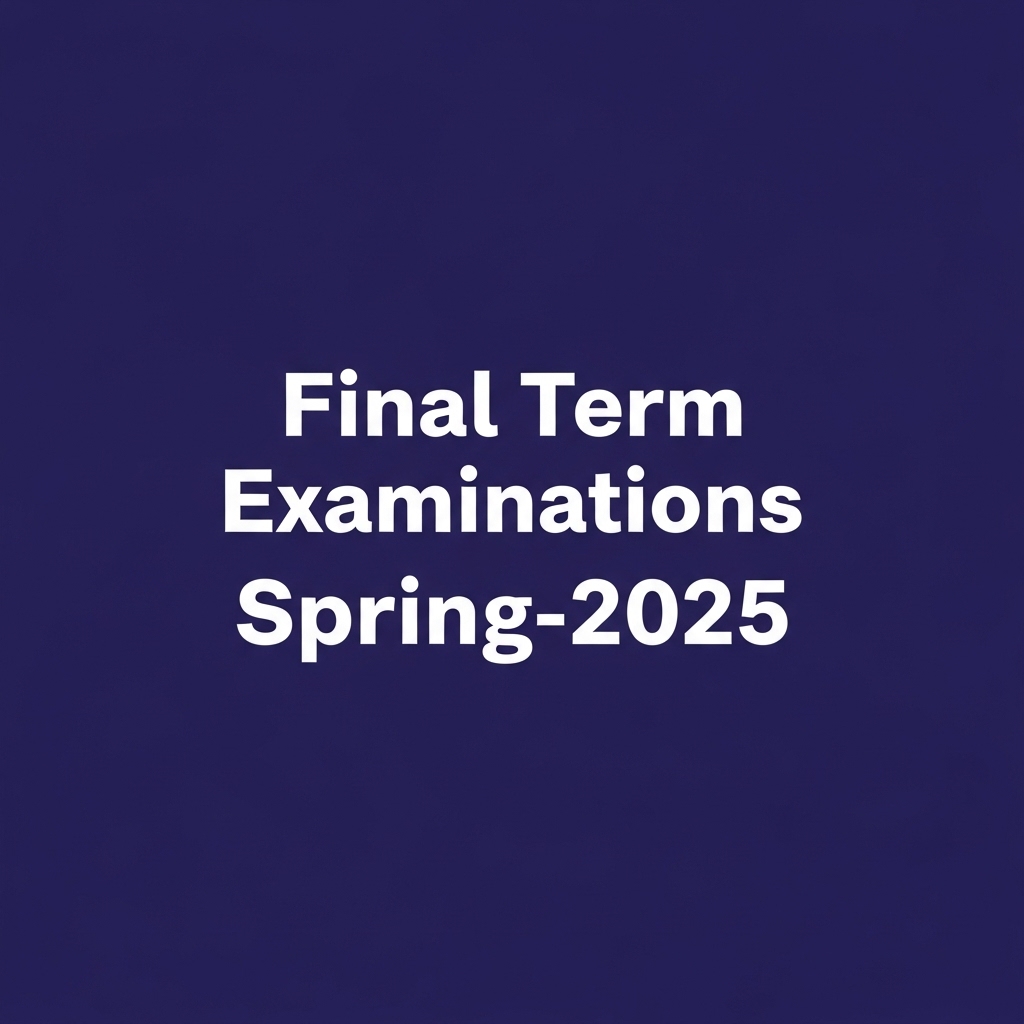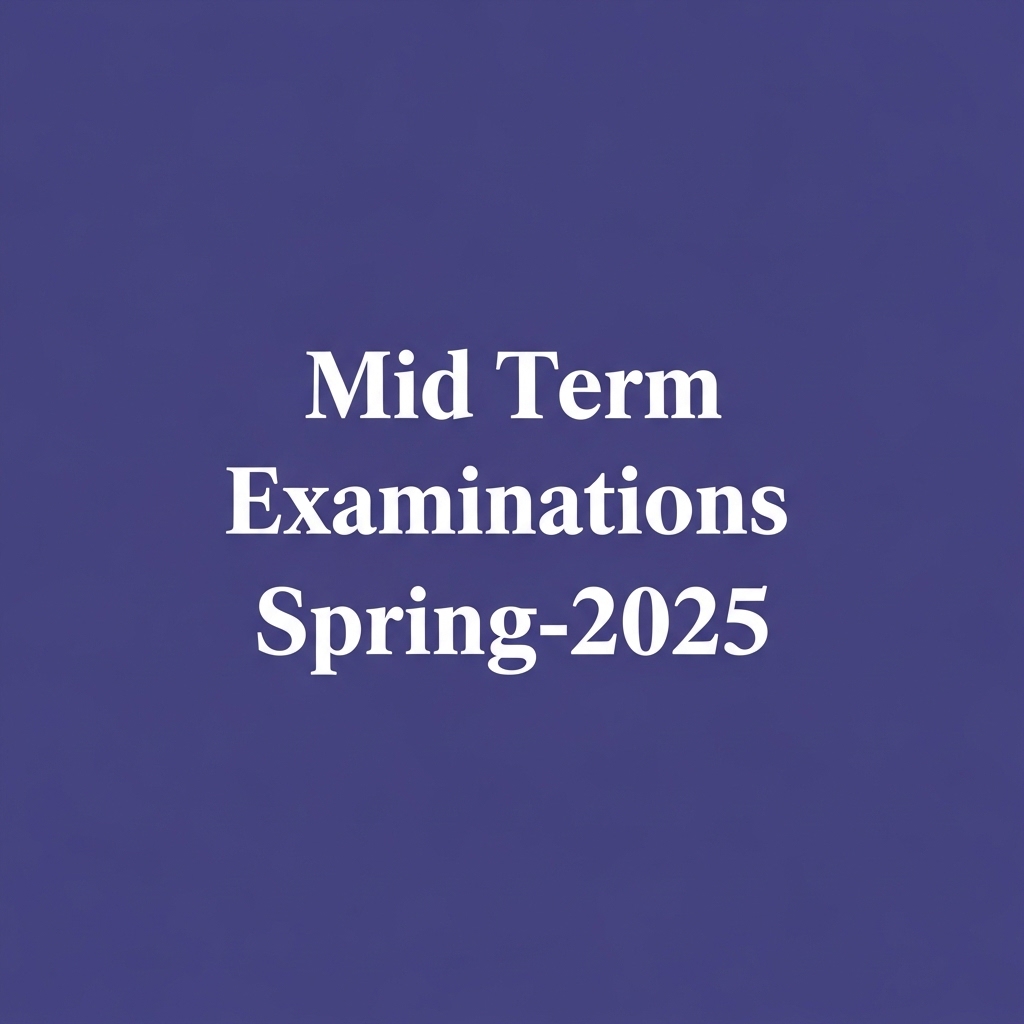YPR Report – 2023-24 Yearly Progress Report (YPR) | 2023-24 Dear All,The document of YPR – 2023-24 has been uploaded. Please find the attached file for details.Thank you, View Scanned Document
YPR Report – 2023-24


YPR Report – 2023-24 Yearly Progress Report (YPR) | 2023-24 Dear All,The document of YPR – 2023-24 has been uploaded. Please find the attached file for details.Thank you, View Scanned Document

Result Summer – 2025 Result for Summer – 2025 Dear Students,The document of Result Summer – 2025 has been uploaded. Please find the attached file for details.Thank you, View Scanned Document

Final Term Summer-2025 Final Term Summer – 2025 Dear Students,The document of Final Term Summer-2025 has been uploaded. Please find the attached file for details.Thank you, View Scanned Document

Registrations Open Summer – 2025 Registrations Open for Summer – 2025 Dear Students,The document of Registrations Open for Summer – 2025 has been uploaded. Please find the attached file for details.Thank you, View Scanned Document

PhD Management Science – NOC PhD Management Science – NOC Letter IMS has officially received the NOC for the PhD program in Management Science. This marks a significant milestone in our academic journey and reaffirms our commitment to excellence in research and higher education. Please find the attached file for details.Thank you, View Scanned Document

Final Term Examinations Spring-2025 Final Term Examinations Schedule – Spring 2025 Dear Students,The timetable for Final Term Examinations – Spring 2025 has been uploaded. Please find the attached file for details.Thank you, View Scanned Document

Mid Term Examinations Spring-2025 Mid Term Examinations Schedule – Spring 2025 Dear Students,The timetable for Mid Term Examinations – Spring 2025 has been uploaded. Please find the attached file for details.Thank you, View Scanned Document
IMS Research Regulations / Policy IMS Research Regulations 1. INTRODUCTION…students first The decades-long IMS (Pak-AIMS) legacy to facilitate students has been a continuous source of motivation for those students who intend to enter in the field of higher education for their brighter future. In continuation of the same, the worthy Rector, IMS, has been kind enough to further support students engaged in academic research through overcoming their problems assessed as a consequence of evaluation of their research work. Hence, in pursuance of his instructions to realize the national higher education objectives through IMS pursuit for quality assurance laid down in line with the HEC Graduate Policy 2023, following research guidelines are being set in the best interest of our students. The document provides comprehensive guidelines and policies aimed at ensuring the highest standards of academic research at IMS (Pak-AIMS) facilitating MPhil and PhD researchers and faculty alike, outlining the essential steps in research work, from selecting a research area to the final submission of a dissertation. It would further help to maintain academic integrity, ensure methodological soundness, and contribute to the advancement of knowledge relevant to national and global perspectives for meaningful and impactful research. 2. POLICY PROVISIONS FOR ACADEMIC RESEARCH Selection of Research AreaThe research area of the MPhil/PhD researcher shall: Correspond to the community needs at regional and local levels and comply with the priority national research agenda. Reflect the basic and pure research. Signify emerging areas of research that coincide preferably with sustainable development goals (SDGs) Development of SynopsisThe research synopsis is supposed to include the following basic components: Title Page: as laid down in IMS regulations, it must depict the topic statement in the form of a brief but comprehensive ‘clause’; not a ‘sentence’. Table of contents: as laid down in APA 7th edition Introduction: of the topic covering one or two pages Review of Related Literature: description/linkage of variables and sub-variables and related issues outlined; description of massive amount of complicated, peer-reviewed literature; brief description of relevant theories/models with outlined variable and sub-variables; developing and linking the local context; comprehensive coverage of topics; identification of gaps in literature and linking it with outcomes of the study; and theoretical/conceptual framework/model. Significance of the Study: why to conduct this study; for whom it is to be conducted; what possible benefits it is going to provide etc. Statement of the Problem: linking global, national and local scenarios. Research Objectives: specific (not double barrel) statements starting, with action verbs, arising out of the topic and problem statements. Research Questions OR Research Hypotheses (only one): following objectives, there must be at least one question for every objective whose answers should lead to the measurement of objectives. Research Methodology: including brief description of research philosophy; research approach; research methodological choice; research strategy; research time horizon; target population; sampling technique; sample calculations showing representativeness; data collection (method and time horizon); ethical considerations and descriptive/inferential data analysis technique(s) Research Tool/Instrument: development/adoption/adaptation of instrument(s); piloting of instrument(s) validity of instrument(s)—construct, face etc.; and reliability of instrument(s) Definitions of Key Terms: operational definitions Limitations/Delimitations: in line with the topic Plan of Work: tentative References: APA 7th edition Appendices: if any Note: The research synopsis is a foundational document that outlines the research framework. It includes the title, literature review, research objectives, methodology, and instrument(s) to be used. Researchers must ensure the clarity, coherence, and relevance of each section, particularly the theoretical framework and research questions, to set the groundwork for the dissertation. The methodology should clearly describe the research approach, target population, sampling techniques, data collection and analysis methods. 3. MPhil/Doctoral Dissertation Each MPhil/PhD researcher shall write a doctoral dissertation reflecting relevance, credibility, effectiveness, and legitimacy of the research. The dissertation must be an original and innovative contribution to knowledge that contributes to solving socioeconomic problems. To improve the quality of a doctoral dissertation, some regulations have been suggested in the following areas: Quality in ReportingThe quality of presentation and reporting in dissertation shall reflect the following characteristics: The document is well written. The contents are balanced, well organized, appropriately styled; clearly structured, and well cohered; and The document is free from grammatical and spelling errors and flawed terminology. Minor shortcomings such as inaccurate use of acronyms and clumsy looking sentence structure have been addressed. Quantitative research proposals must include a valid statistical design for data analysis. Formatting shall be compatible with international standards. Methodological QualityTo produce MPhil/PhD researchers capable of conducting research independently, ensuring the technical soundness of their MPhil/PhD dissertations is integral. The following guidelines shall be useful in making the MPhil/PhD research methodologically sound: Guidelines ensuring the quality of Qualitative Research: An MPhil/PhD research dissertation, based on the Qualitative Research methods should satisfy, at least, the following questions: “Does the research, as reported, illuminate the subjective meaning, actions and contexts of those being researched?” “Is there evidence of the adaption and responsiveness of the research design to the circumstances and issues of real-life social settings met during the course of the study?” “Does the sample produce the type of knowledge necessary to understand the structures and processes within which the individuals or situations are located?” “Is the description provided detailed enough to allow the researcher or reader to interpret the meaning and context of what is being researched?’ “How are the different sources of knowledge about the same issue compared and contrasted?” Are subjective perceptions and experiences treated as knowledge in their own right?” Guidelines ensuring the quality of Quantitative Research: An MPhil/PhD dissertation with Quantitative Research methods should satisfy, at least, the following questions Reliability – are the results repeatable? Validity – does it measure what it says? Internal validity – do the research results indicate what they appear to be? External validity – can the results be generalized to other settings (ecological validity) and to other populations (population validity? Appropriateness of the Methods to the Aims of the StudyTo achieve the research objectives, the alignment of the research approach and methods is necessary. Therefore, an MPhil/PhD… Continue reading IMS Research Regulations / Policy
Policy on Ethical Standards Introduction There should be a system within the university that can maintain ethical standards to facilitate academic and research work. Policy Statement Basic ethics and standards in the field of knowledge and research should be adhered to and admitted from all those who are affiliated with this institution and ethical principles should be clear enough that following them will create an environment within the organization that will empower those working there and give them the passion to adhere to these principles. Elementary Ethical Principles The following principles are strictly adhered to in the making of this system in the IMS on the basis of which a conductive environment is available in which the work of knowledge and research is being carried out. The work of knowledge and research should be done as worship. The required time and effort for knowledge and research work should be provided. The quality of research should not be compromised Trust and honesty should be fully observed and if there is a reference to someone, it should be very clear. Explain your successes and failures in research Moderation and ethical values should be fully observed in the criticism and expression of research of other researchers. Transparency should be ensured and the ability to listen and understand criticism with an open heart should be created. Collective research requires adaptation to the aims and objectives of the university as well as efforts to meet their expectations. Observation and compilation of fresh investigations, experiments and results should be of high quality. Researchers must ensure that their research is ethical, legal and professional and be useful to all humanity. Statutory Bodies Ensuring Ethical Standards Research Committee Board of Advanced Studies and Research View Scanned Document
National Linkages Policy IMS – National Linkages Policy Objectives and Procedure The National Linkages Policy of IMS ensures fruitful linkages with national universities/associations. The following are the objectives of the policy. The joint research, conferences, seminars, workshops, and other capacity-building initiatives with other HEIs, research-based organizations, and the corporate sector. The production of materials for various language departments via foreign embassies, consulates, and missions. Creation of job and internship possibilities for graduates and students. Research and commercialization activities are carried out with both established and growing companies and industries in Pakistan. The establishment of a strategic relationship between academics and students and business and industry. Close collaboration with university incubators and researchers to advance business and research. Policy guidelines must to be taken into consideration while processing cases for local or national linkages. The establishment of connections with reputable higher education institutions, the corporate sector, research-based institutions and organizations, and small and medium-sized enterprises (SMEs) all are important. Both parties should gain from the collaboration. It must be made clear that IMS is not held financially or legally liable for any actions taken by the corporation. The objectives, goals, and core values of IMS cannot be compromised by the agreements. View Scanned Document